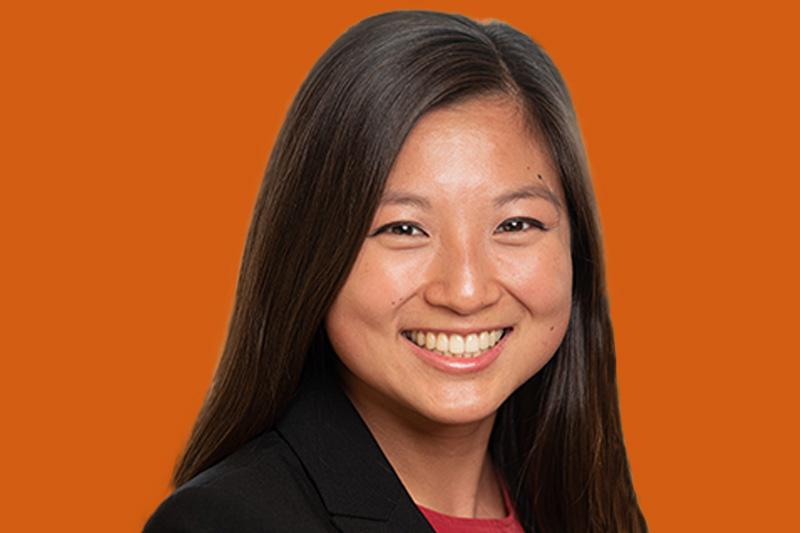-

Hear from Professor Monica Toft
Learn how Professor Monica Toft is shaping the study of global affairs and diplomacy at Fletcher.
Hear from Prof. Toft -

Explore Fletcher academics in action
Fletcher Features offers insights, innovation, stories and expertise by scholars.
Get global insights -
Get application tips right from the source
Learn tips, tricks, and behind-the-scenes insights on applying to Fletcher from our admissions counselors.
Hear from Admissions -

Research that the world is talking about
Stay up to date on the latest research, innovation, and thought leadership from our newsroom.
Stay informed -
Meet Fletcherites and their stories
Get to know our vibrant community through news stories highlighting faculty, students, and alumni.
Meet Fletcherites -

Forge your future after Fletcher
Watch to see how Fletcher prepares global thinkers for success across industries.
See the impact -

Global insights and expertise, on demand.
Need a global affairs expert for a timely and insightful take? Fletcher faculty are available for media inquiries.
Get in Touch
A Proud Heritage: Reflections on the Asian-American Experience in Public Service
AAPI Heritage Month Reflection from Joey Ching PhD25

Observed annually each May, Asian American and Pacific Islander Heritage Month is a time to celebrate the rich cultural diversity of Asian Americans and Pacific Islanders and recognize their vast contributions to our nation’s history. The Fletcher School asked members of our community to reflect upon what the month means to them. Hear from Joey Ching PhD25 on her family’s legacy through WWII and her commitment to service in the United States military.
As members of the Asian American and Pacific Islander (AAPI) community, my family has a rich, complex, and tumultuous history in the United States, shifting with the tide of race-based immigration policies, domestic public opinions, and the onset of war. Before the U.S. passed the Chinese Exclusion Act in 1882, my Chinese ancestors sailed to Hawaii as much-needed labor for sugar and pineapple plantations. My grandmother was in the first grade when she heard the roaring of Japanese Imperial aircraft and saw the plumes of smoke billowing from Pearl Harbor, launching the U.S. into World War II. Her father—my great grandfather—joined the nightly neighborhood patrol and warned neighbors when light seeped through cracks in their blackout curtains, fearing signs of life would make their homes targets for future airstrikes from Japan.
Meanwhile, my Japanese ancestors, who came to California as agricultural laborers, were met with a wave of racial prejudice and wartime hysteria, leading to the internment of over 120,000 first and second-generation Japanese-Americans over the course of World War II. My grandfather was five when his family was “rounded up” and taken to the Gila River War Relocation Center, where he would spend the next three years of his life. Even after the war ended and my relatives were released, life would never be the same. Racist attitudes persisted, and Japanese-Americans faced discrimination, harassment, and in some cases, vigilante violence. His father—my other great grandfather—was never able to recoup his wholesale agricultural business, his family home, or his beloved Oldsmobile. For Asian-Americans, the end of the war simply meant starting over and slowly piecing the “American Dream” back together again.
Nonetheless, my family is incredibly proud to be American and has dedicated their lives to public and community service. During World War II, my Japanese-American uncle joined the 442nd Infantry Regiment, a segregated Japanese-American unit who fought in the European Theater and remains the most decorated unit for its size and length of service in U.S. military history. My Japanese-American grandfather became a U.S. Foreign Service Officer, representing the U.S. abroad and becoming a vocal advocate for civil rights. The horrors of the attack on Pearl Harbor motivated my Chinese-American relatives in Hawaii to pursue military service, joining the U.S. Army and U.S. Air Force, and eventually serving in the Korean War. My Chinese-American grandmother took a job as a civilian secretary at Pearl Harbor, working in a building riddled with bullet holes from the day she witnessed as a little girl. My Chinese-American grandfather, who retired from the U.S. Air Force after 28 years of service, not only encouraged my father to attend the U.S. Air Force Academy, but also inspired me to apply over 30 years later, making me a third-generation service member and the first woman in my family to serve in the U.S. military.
As an AAPI female military officer, I am committed to carrying on my family’s tradition of service and ensuring we do not repeat the mistakes of our past. I am proud of my heritage and embrace the AAPI culture and traditions that make me who I am today. As my family has inspired my path forward, I will strive to make positive change and pave the way for future generations of Asian Americans and Pacific Islander Americans in public and community service. By understanding our history, sharing our culture, and honoring the sacrifices of our ancestors, we can make sure our shared legacy of service, perseverance, and the pursuit of the “American Dream” will always live on.
Joey L. Ching (she/her/hers) is a PhD student at The Fletcher School and is a Captain in the U.S. Air Force. As a Fulbright Scholar, she earned a Master’s in International Studies at National Chengchi University in Taipei, Taiwan.
DISCLAIMER CLAUSE: The views expressed in this article are those of the author and do not reflect the official policy or position of the United States Air Force, Department of Defense, or the U.S. Government

